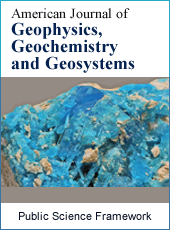Respecting intellectual property rights is a foundational principle of The Public Science Framework's Codes of Ethics. Plagiarism, in which one misrepresents ideas, words, computer codes or other creative expression as one's own, is a clear violation of such ethical principles. Plagiarism can also represent a violation of copyright law, punishable by statute.
All authors are deemed to be individually and collectively responsible for the content of papers published by Public Science Framework. Hence, it is the responsibility of each author to ensure that papers submitted to Public Science Framework attain the highest ethical standards with respect to plagiarism.
When plagiarism is detected, Public Science Framework will take the.htmls as determined by the type of plagiarism. Unless determined otherwise during the investigation, all authors are deemed to be individually and collectively responsible for the content of a plagiarizing paper. Public Science Framework Editorial Board places the investigation of each claim of plagiarism at the highest priority for resolution and.html.
Originality
In order to avoid ethical violations, all journals published by American Institute of Science are committed to only publishing original material that was not published before, except in the form of an abstract or proceedings-type publication (including electronic preprints and discussion papers), or that is considered for publication elsewhere. Authors have to agree on that in a consent form. Furthermore, redundant publications ("salami tactic" of publishing small parts of the same research in several papers) should be avoided.
Redundant
Redundant submission of papers to multiple publications is unethical. It wastes the time of the editors and peer reviewers that form research communities and contribute to the publication of scholarly journals. Any article found to have been submitted to more than one journal, published by Science Publish or another publisher, will be immediately rejected. Sanctions, such as a ban from submitting further publications for a specified period may also be considered. Authors must inform the editors of journals to which they submit their work about any related papers by any of the authors of the article that have been submitted to the same or other journals.
Author(s) contribution and funding statement
All authors listed on a presented scientific work must have contributed a significant part to it. Vice versa, all persons who contributed to the presented work need to be named in the list of authors. In addition, sources of financial support, if any, must be clearly disclosed.
Citation manipulation
Any manipulation of citations (e.g. including citations not contributing to a manuscript's scientific content, citations solely aiming at increasing an author's or a journal’s citations, etc.) is regarded as scientific malpractice.
Plagiarism
Plagiarism means the use of any material and ideas developed or created by another person without acknowledging the original source. The decision on whether a manuscript should be rejected because of fraud or should proceed to the peer-review process belongs to the handling editor. The similarity reports are also made available to referees.



